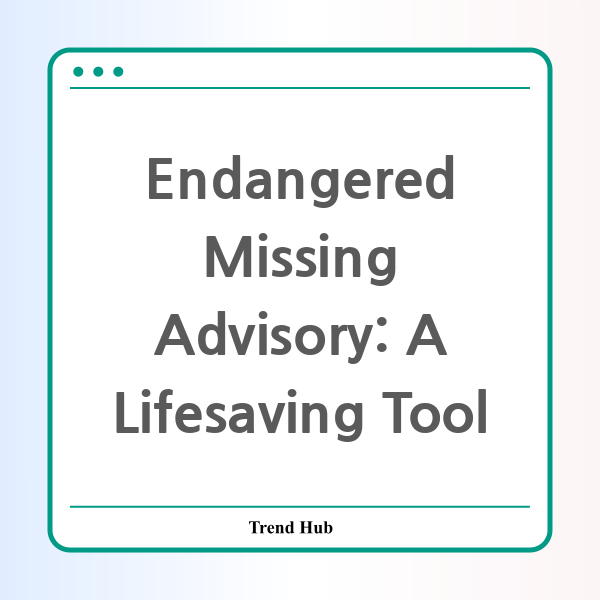* This website participates in the Amazon Affiliate Program and earns from qualifying purchases.

What Happens When an Elderly Loved One Goes Missing?
When an elderly individual, especially one with conditions such as dementia, goes missing, the feelings of panic and fear are palpable. Families are thrown into turmoil as the clock ticks and uncertainty looms. Thankfully, initiatives like the Endangered Missing Advisory (EMA) serve as a crucial lifeline in these distressing situations, demonstrating the power of community and cooperation.
Recently, the story of 86-year-old William Anderson from Omaha highlights the effectiveness of the EMA. Reported missing after leaving his home on a Thursday evening, the swift action of the Omaha police and the Nebraska State Patrol led to a successful and heartwarming outcome.
William was last seen picking up dinner around 6:30 PM, and given his condition of dementia, concerns for his well-being skyrocketed. This led authorities to issue an Endangered Missing Advisory, which alerts the public about the vulnerable individual in hopes of a quick recovery. The advisory included crucial details about his appearance, the vehicle he was driving, and his last known whereabouts.
The response from the community and law enforcement was nearly instantaneous. By 11 AM the following day, news broke that William had been located safe and sound, a result made possible by the collaborative efforts of law enforcement and vigilant citizens. This situation serves as a powerful reminder of the importance of acting quickly to locate vulnerable individuals.
Understanding the Endangered Missing Advisory
The Endangered Missing Advisory, often confused with other missing person alerts, specifically targets cases involving individuals who are believed to be at risk due to their age, mental state, or physical condition. This includes, but is not limited to:
- Elderly individuals with cognitive impairments, such as dementia.
- Children or adults with developmental disabilities.
- Anyone who may be unable to return to safety due to their condition.
One of the critical components of the EMA is timely dissemination of information. The sooner that details are released to the public, the better the chances are for a positive outcome. In cases involving dementia, where individuals may become disoriented or confused, every passing moment can affect their safety.
Tips for Families
For families with aging loved ones, there are several proactive steps that can be taken to ensure safety:
- Establish a routine: Familiarity can help individuals with dementia feel secure.
- Utilize tracking technology: GPS devices can be invaluable if a loved one goes missing.
- Communicate effectively: Ensure that everyone in the family is aware of the person’s needs and potential triggers for wandering.
In conclusion, the swift resolution of William Anderson’s case not only alleviated the fears of his family but also illustrated the effectiveness of community efforts in the face of potential tragedy. As we reflect on these situations, it becomes increasingly clear that awareness and prompt action can save lives.
Let us continue to advocate for policies and practices that support rapid response to missing persons, particularly those who are vulnerable and in need of our protection. Together, we can help ensure that there are more successful outcomes like that of William Anderson.
* This website participates in the Amazon Affiliate Program and earns from qualifying purchases.